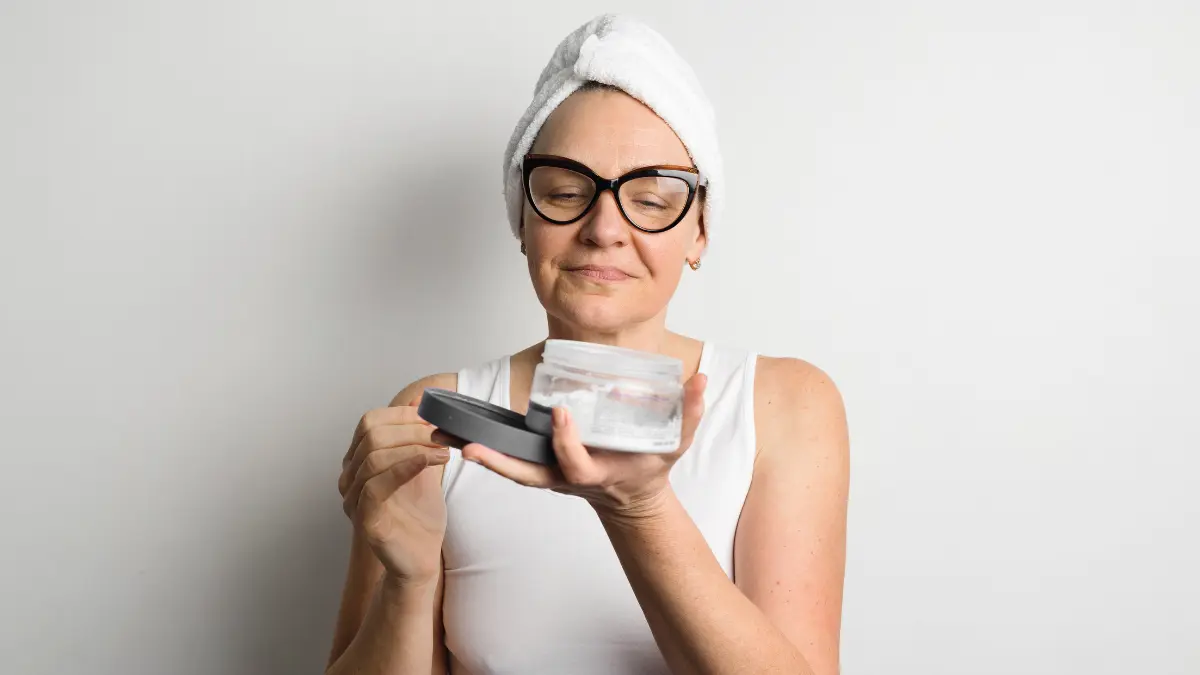A Guide to Menopause Skin Care: Nurturing Your Skin Through the Change
As women experience the natural transition of Menopause, their skin undergoes noticeable changes due to hormonal fluctuations.
The decline in Estrogen levels during this phase can manifest in skin dryness, thinning, and increased sensitivity.
Nurturing your skin during this transformation can reduce skin irritation, improve skin tone, and restore young shine.
It is essential to prioritize skin care during Menopause to address these concerns effectively.
So, let’s get started and learn the range of Menopause skin care tips.
Menopause skin care tips
With dedicated care, it’s possible to maintain the health and vibrancy of your skin during Menopause.
Here are some valuable tips to guide you in nurturing your skin through Menopause:
Prioritize hydration
Keeping your skin well-hydrated is crucial.
Drink ample water and regularly moisturize your skin to maintain its moisture barrier and prevent dryness.
Add lipids
Menopausal skin can benefit from skincare products containing lipids.
These lipid content can replenish the skin’s natural oils, promoting elasticity.
Gentle cleansing
Opt for mild cleansers that are free of harsh ingredients.
Gentle cleansers effectively remove impurities without stripping away essential oils or disrupting the skin’s delicate pH balance.
Moisturize regularly
Invest in a high-quality moisturizer enriched with hydrating ingredients like Hyaluronic acid and Ceramides.
Regularly apply it to your skin to maintain optimal hydration and protection.
Sunscreen protection
Shielding your skin from the sun’s harmful UV rays is crucial.
Apply a broad-spectrum sunscreen with a Sun Protection Factor (SPF) of 30 or higher daily, regardless of the weather conditions.
Noninvasive procedures
Noninvasive procedures such as laser therapy and chemical peels can work wonders for Menopausal skin.
These treatments can improve skin texture, reduce wrinkles, and promote even skin tone.
Consult a qualified dermatologist to explore the options suitable for your unique needs.
Nourish with Antioxidants

Incorporate antioxidant-rich foods into your diet, such as grapes, apples, lemons, berries, broccoli, spinach, carrots and potatoes.
Antioxidants help combat free radicals, which can contribute to skin damage and premature aging.
Manage stress
Chronic stress can exacerbate skin issues.
Find healthy ways to manage stress through meditation, yoga, or engaging in activities you enjoy.
Prioritizing stress management can positively impact your skin health.
Prioritize restful sleep
Adequate sleep is essential for your skin’s repair and regeneration processes.
Aim for 7-8 hours of quality sleep each night to support optimal skin health.
Avoid hot water
When cleansing your face or bathing, opt for lukewarm water instead of hot water.
Hot water can strip away the skin’s natural oils, leading to further dryness and irritation.
Hydrating face masks

Treat your skin to hydrating face masks once or twice a week.
These masks can provide an extra boost of moisture and nourishment, leaving your skin revitalized and radiant.
Follow a self-skin care routine
Create a skincare routine that feels comfortable and easy-going.
You can opt for face creams consisting of hyaluronic acid, peptides, antioxidants, and ceramides.
Avoid harsh exfoliants like retinol and glycolic acid, fragrances, essential oils, and alcohol.
Incorporate facial massages or relaxation techniques to reduce stress and enhance the overall effectiveness of your skincare routine.
It’s crucial to remember that everyone’s skin is unique, so listen to your skin’s needs and adapt your routine accordingly.
Conclusion
Caring for your skin during Menopause is crucial for maintaining health and vitality.
Hormonal shifts can be mitigated by a complete skincare routine that includes nourishment and hydration.
Noninvasive techniques like laser therapy and chemical peels and professional guidance can improve skin’s appearance.
Remember to prioritize self-care, manage stress, and adopt a healthy lifestyle for overall skin health.
With these suggestions, you may gracefully embrace Menopause and nurture your skin.
Frequently Asked Questions
What skincare ingredients should be avoided during Menopause?
During Menopause, avoid harsh exfoliants like retinol and glycolic acid. Fragrances, essential oils, and alcohol should also be avoided. Opt for gentle cleansers, hydrating serums, and moisturizers with hyaluronic acid, peptides, and antioxidants to nourish and protect the skin.
What is the best skin care for Menopause?
During Menopause, the best skincare routine focuses on hydration and nourishment. Use gentle cleansers, moisturizers with hyaluronic acid, and serums with peptides and antioxidants. Sunscreen is crucial. Consult a dermatologist for personalized advice and consider hormone replacement therapy if appropriate.
Does retinol help Menopausal skin?
Retinol can help with Menopausal skin concerns. It promotes collagen production, reduces wrinkles, and improves texture. However, it may cause dryness and irritation. Start with a low concentration and gradually increase use. Consult a dermatologist for personalized advice and alternatives.
What face cream is good for Menopause?
During Menopause, look for face creams that provide hydration and nourishment. Opt for products with ingredients like hyaluronic acid, peptides, antioxidants, and ceramides.
WowRx uses only high-quality sources while writing our articles. Please read our content information policy to know more about how we keep our content reliable and trustworthy.






